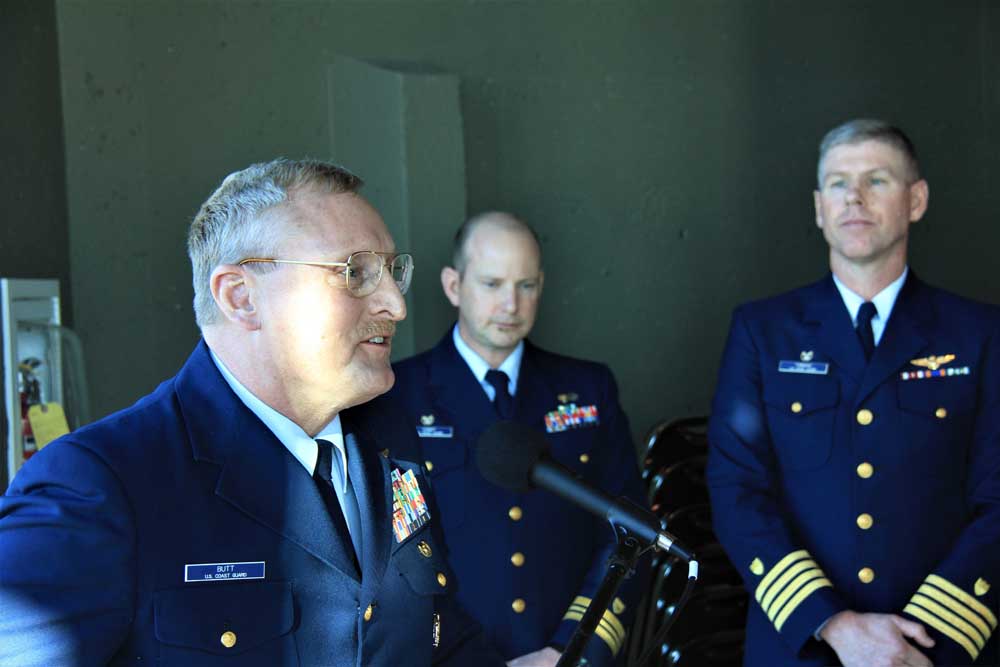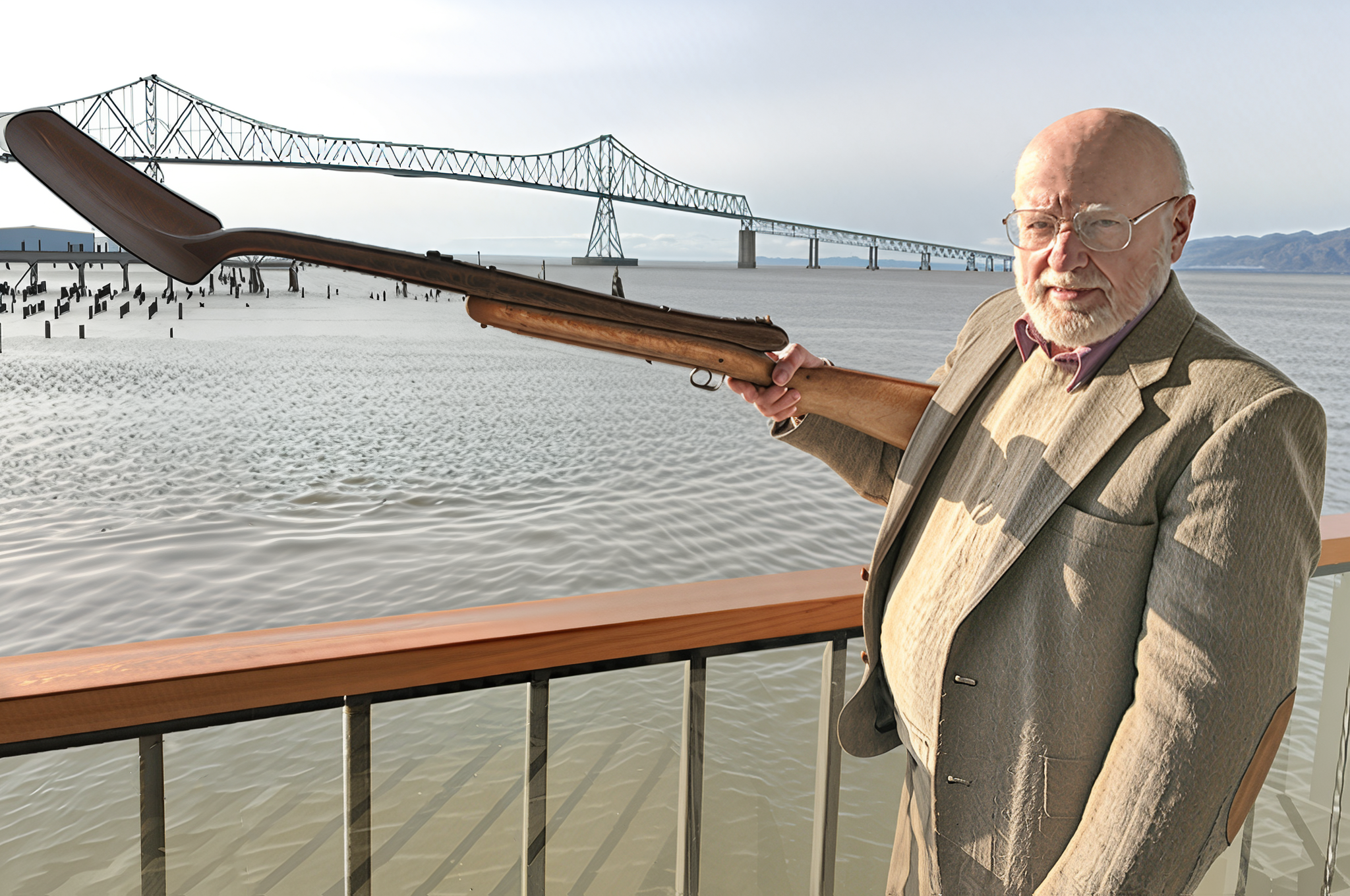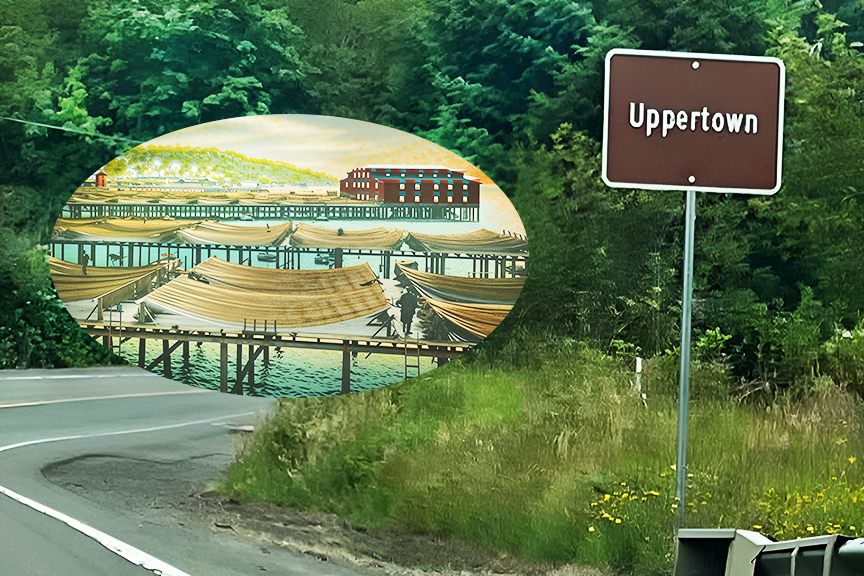‘For your tomorrow, we gave our today’
Published 5:34 am Monday, January 16, 2017

- Rear Adm. Mark Butt, commander of the U.S. Coast Guard's 13th District, recounted the attempted rescue of the fishing vessel Sea King near the entrance to the Columbia River in 1991, during which one Coast Guardsmen and two mariners died. Behind him, from left, are Station Cape Disappointment Commander Lt. Tom Condit and Capt. William Timmons, commander of Sector Columbia River.
ILWACO, Wash. — Gordon Huggins, a retired electrician’s mate with the U.S. Coast Guard, remembers the night a nosebleed saved his life.
On Jan. 12, 1961, Huggins was aboard the Coast Guard’s 52-foot motor lifeboat Triumph, lost in rough seas along with five of his fellow crewmen. He was the lone survivor in a tragedy that was the worst of several for the Coast Guard in the Pacific Northwest over the past 71 years.
Huggins and other current and former Coast Guardsmen, friends and family gathered Saturday at the Lewis and Clark Interpretive Center, perched on the cliffs above the mouth of the Columbia River, to pay tribute to the lifesavers who have given their lives over the years.
The calm waters below the memorial belied the heavy seas that have helped shape the entrance’s reputation as “The Graveyard of the Pacific.” Huggins remembered a much different scene when the Triumph reached Peacock Spit, motoring out to rescue two Ilwaco, Washington, fishermen aboard the crabber Mermaid who had lost a rudder.
“By the time we got out into here, we were going through 30-foot breakers,” he said. “On the way out, for some reason, I got a nosebleed. The coxswain told me ‘Go down below and see if you can get rid of it.’”
Shortly after handing a tow line to a crew member above and closing the watertight hatch, he said, the boat rolled onto its side.
“The next thing, she was upside down, and the ceiling was the floor,” he said. “I kept waiting for it to keep going, because everybody had told us, ‘Oh, it’s a re-rightable boat.’ Well, it hadn’t been built that way.”
When the boat finally flipped upright, Huggins said, the rest of the crew was gone. Huggins, struggling to speak because of the memory, said he held onto the boat for more than an hour before it flipped again, sending him into the icy waters.
“I knew I was gone at that time, because once you’re out there in that water out there in wintertime, you’re only good for maybe 15, 20 minutes,” he said. “All we were wearing was just plain dungarees and a foul weather jacket. We didn’t have the equipment like they have nowadays.”
Huggins said he was hit by something and passed out, but eventually saw a light and was saved from the surf by two Coast Guardsmen from North Head Lighthouse.
Of his fellow crewman — coxswain John Culp, engineer Joseph Petrin, seaman apprentice Gordon Sussex and boatswain’s mates John Hoban and Ralph Mace — Huggins said Culp was the only other body ever found. The Triumph went down as the worst Coast Guard disaster in the Pacific Northwest.
Looking at the calm seas, Huggins said, someone might not notice how bad it can get.
“We fight a war every day that we go out in those boats,” he said. “We may not be having bullets shot at us, but we are still fighting mother nature. She’s out there every day, and we have to watch ourselves every day we go out.”
Twenty Coast Guardsmen have lost their lives on rescues and in training in the Pacific Northwest, including four aboard a 36-foot motor lifeboat in 1946, five on the Triumph, three during night navigation training on a 41-foot utility boat, one in a Coast Guard aircraft in 1981, three during a 1997 rescue of a sailing boat on Washington’s Quillayute River Bar and three when a Jayhawk helicopter from Air Station Sitka went down on a return trip from Astoria.
Adm. Mark Butt is commander of the Coast Guard’s 13th District covering the Pacific Northwest. On Jan. 11, 1991, he was a command duty officer at Air Station Astoria when one Coast Guardsmen and two mariners died during the rescue of the 75-foot trawler Sea King in rough seas.
Butt was a pilot aboard an HH-65 Dolphin helicopter assisting in the rescue. While lowering a swimmer with water pumps to the Sea King, he said, the hoist cable wrapped around the mast of the boat as it unexpectedly turned. The cable eventually snapped, sending the swimmer to the deck and the cable snapping up into the helicopter’s rotor head.
“We immediately had severe vibrations, and the book said land or ditch immediately,” Butt said. “In that sea state, to land or ditch immediately would have meant several people on that helicopter would be dead today. So I said a small prayer, bee-lined back over this way and managed to get the aircraft on deck before the rotor head gave out.”
The Sea King eventually capsized and sank. A Coast Guardsmen and two crew members in the pilothouse went down with the vessel. Butt said he still has nightmares about what could have gone wrong with the helicopter. He the three lives lost trying to save the Sea King were too much. Today, he said, the Coast Guard still offers the same lifesaving service, but thinks more about the risk to its own service members.
Capt. William Timmons, commander of Sector Columbia River, said it is the responsibility of the living to come together and remember those guardians who gave their lives. He ended with a quote from British poet John Maxwell Edmonds: “When you go home, tell them of us, and say, ‘For your tomorrow, we gave our today.’”









